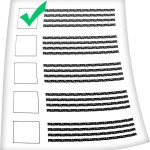
This audit of clinical practice in a mental health service for people with learning disabilities looked at the current approach to people with learning disabilities and psychotic disorders.
The researchers looked at clinical practice with 910 people who were patients of the learning disability psychiatrists in Buckinghamshire. The current approach to clinical practice in the area was compared with the published guidelines on the management of schizophrenia from the National Institute for Health and Clinical Excellence (NICE).
The team found that 28% of the 910 participants had a dual diagnosis of psychosis and learning disability and that 40% showed moderately severe psychotic symptoms.
In terms of the treatment responses, they found that oral atypical antipsychotics were used most frequently although 25% of the participants were found to be treatment resistant.
The authors expand upon what they describe as ‘varied presentation’ of psychoses in people with learning disabilities. They suggest a helpful addition to clinical assessments would be the use of a symptom rating checklist or scale which could be used in diagnosis and in monitoring the course of the psychosis. They set out what could be in such a checklist and recommend its use in routine clinical practice.
Psychotic disorders in learning disabilities- outcome of an audit across community teams, Varghese, S & Banerjee, S, in British Journal of Learning Disabilities, 39: 148–153.
